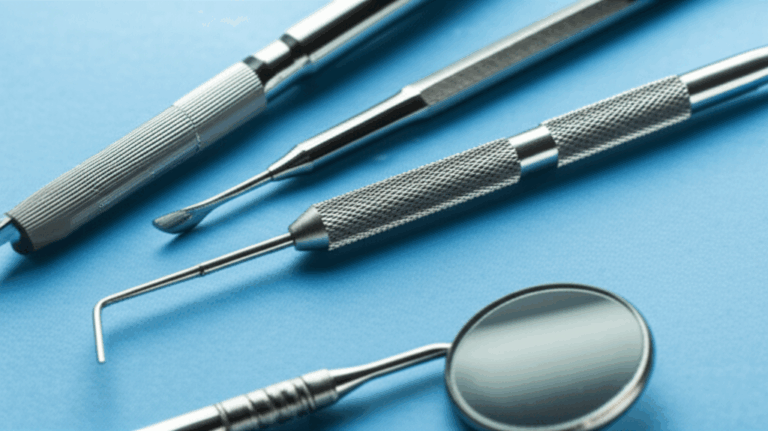
Does Idaho Medicaid Cover Dental Implants? Your Complete Guide
That sinking feeling when your dentist tells you that you need a dental implant—and then you wonder, “Will Idaho Medicaid pay for it?” If you’re asking this question, you’re not the only one. Dental implants can change your life, but they cost a lot. Many Idaho folks look for help, hoping Medicaid can step in and pay. If you feel confused or a bit worried, you’re in the right place.
Let’s walk through the answer together, step by step, using simple examples and real talk. After reading, you’ll know how to make the best choice for your teeth, your health, and your money.
In This Article
- The Direct Answer: Idaho Medicaid & Adult Dental Implants
- Idaho Medicaid Dental Benefits for Adults (Ages 21 and Older)
- Dental Coverage for Children and Young Adults (Under 21) in Idaho
- Other Ways to Pay for Dental Implants in Idaho
- How to Find an Idaho Medicaid Dental Provider
- What To Do if You Need Dental Implants with Idaho Medicaid
- Key Points: Take Control of Your Dental Health
The Direct Answer: Idaho Medicaid & Adult Dental Implants
To be clear: Idaho Medicaid usually does NOT pay for dental implants for adults who are 21 or older.
Why is that? Dental implants are usually called “optional” or “cosmetic” treatments. Medicaid is set up to pay for important dental work, the kind that helps with pain or basic chewing, not for the more advanced stuff or fixing your smile to look perfect.
Possible Exceptions: Could There Be One?
There’s a small chance—very small. Idaho Medicaid might make an exception if the implant is medically needed.
But what does that really mean?
Picture this: you’ve had a bad face injury, surgery for mouth cancer, or were born missing a tooth needed for eating. If there’s no other fix—and it’s truly needed for your health—your dentist can send in a bunch of forms to try to get it approved. It’s not easy. The process is tough and slow, and most of the time, the answer is “no.”
Simple Recap:
- For adults, Medicaid almost never pays for implants.
- “Medically needed” means there are no other ways to fix the problem, and you need the implant for your health. Your dentist must prove it.
- You must ask for approval first. There are no shortcuts.
Idaho Medicaid Dental Benefits for Adults (Ages 21 and Older)
Now you might be thinking, “If I can’t get implants, what does Medicaid actually cover?”
What’s Usually Paid For?
Think of Medicaid’s dental plan for adults like a basic toolbox. It gives you what you need to prevent or fix dental troubles—not to give you a perfect smile.
Often covered:
- Preventive Care: Regular checkups, cleanings (most times twice a year), and X-rays.
- Basic Repairs: Fillings to fix cavities.
- Teeth Removed: Pulling teeth that can’t be saved.
- Dentures (Removable Teeth): Full or partial sets (these come with some limits on how often you can get new ones; not fancy implant dentures).
- Emergency Help: Care for pain, swelling, or infections.
Sometimes, repairs like crowns or root canals are covered, but only if you really need them for your health. Check your specific Medicaid plan!
Why Not Dental Implants?
A few clear reasons:
- Price: Just one dental implant in Idaho may cost $3,000 to $5,000 or even more. Dentures are much cheaper.
- Medicaid’s Main Goal: Medicaid is for basic health and tooth problems, not extra things like implants.
- State Rules: The Idaho Department of Health and Welfare keeps implants in the “not for adults” list.
Stay with us—we’ll look at your other choices next.
Dental Coverage for Children and Young Adults (Under 21) in Idaho
If your child or teen has Medicaid, the rules are different. Thanks to a federal rule called EPSDT (Early and Periodic Screening, Diagnostic, and Treatment), Idaho Medicaid covers more for kids.
More Coverage for Children and Teens
EPSDT is like a safety net for kids’ teeth. Its aim? Let every child have a good shot at healthy teeth.
Kids get (most times):
- Regular dentist visits, cleanings, and sealants to stop cavities
- Fillings, crowns, and sometimes root canals if needed
- Teeth pulled for serious damage
- Braces if truly necessary (like bad bites that affect eating or breathing)
- Dentures or other replacements if nothing else works
Implants for Kids: Are They Covered?
Very rarely. Like adults, Medicaid nearly never pays for implants for kids—except in extreme cases:
- Bad injuries (like sports accidents)
- Serious birth problems
- Other big, proven health needs
All of these need:
- Permission in advance
- Doctor’s proof that it’s truly needed
- No other treatments work
If you think your child’s case fits, talk to their dentist—and be ready for a wait.
Other Ways to Pay for Dental Implants in Idaho
Let’s say you need a new tooth and implants aren’t covered by Medicaid—what can you do? Here are some other ideas in Idaho.
1. Low-Cost Dental Clinics & Dental Schools
Community Health Centers (CHCs) and Federally Qualified Health Centers (FQHCs) can be found across Idaho. These places offer dental care at prices based on your income.
Some dental schools—even if not in Idaho—may let you get care at lower prices. Yes, students may work on your teeth, but real dentists make sure it’s done right.
2. Dental Grants & Groups That Help
Idaho has some groups that help people get needed dental care—sometimes including dentures.
- Local charities may have grants or programs for dental work.
- Ask your clinic, United Way, or a social worker for ideas.
3. Payment Plans & Loans
Many dentist offices in Idaho let you pay a little each month through special loans or payment plans. Think of it like buying a fridge on layaway—just for your teeth.
4. Other State and Federal Programs
- Veteran’s Dental Benefits: If you’re a veteran, the VA may pay for implants if you qualify.
- Help for Those with Disabilities: Some programs offer extra dental help if you have certain health or development problems. Ask the Idaho Department of Health and Welfare or groups like DisAbility Rights Idaho.
5. Other Tooth Replacements
If implants are not possible, ask about:
- Dentures (Full or Partial): Medicaid pays for these for adults. These are “pop in, pop out” teeth.
- Bridges: Not often covered, but worth a question—these can fill gaps for a few missing teeth.
- Crowns: Sometimes covered if needed for eating or talking.
Ever wonder how these are made? Special labs—like a removable denture lab or a crown and bridge lab—make them to fit your mouth just right.
How to Find an Idaho Medicaid Dental Provider
Finding a dentist who takes Idaho Medicaid can be tough. Here’s how to make it easier:
1. Idaho Department of Health and Welfare (IDHW) Tools
- Provider Search: Use Idaho Medicaid’s provider list. It shows all local dentists who work with Medicaid.
- Customer Service: Call the Idaho Medicaid phone line. They can explain your benefits and tell you about dentists close by.
2. Managed Care Plans
If you’re in Healthy Connections or another Medicaid plan, call their member services team. They can give you a list of dentists and sometimes help you set up visits.
3. Community Clinics
Community health centers and FQHCs usually take Medicaid and work with people of all kinds. They may even help if you don’t have insurance.
What To Do if You Need Dental Implants with Idaho Medicaid
Still think you need implants—or maybe you’re just not sure? Here’s what to do next:
1. Talk to Your Dentist
Start here. Be honest:
- Explain what you need and ask questions.
- Ask about all options—implants, bridges, dentures—and what they mean for you.
- See if you might fit the “medically needed” rule. If yes, ask your dentist to start the approval forms.
2. Check Your Own Medicaid Plan
Every plan is a bit different. So, look at your booklet or call Idaho Medicaid. Find out:
- What is covered (and not covered)
- Yearly limits (don’t get surprised later!)
- What papers you need if you want to ask them to change a denial
3. Try Other Ways to Pay
Don’t only count on Medicaid. Try:
- Grants, community programs, or free clinics
- Affordable care at dental schools
- Monthly payment plans or credit options
If money is tight, resources like this implant cost page explain what implants may really cost and what things affect the price.
Key Points: Take Control of Your Dental Health
Let’s put it all together:
In Short
- Idaho Medicaid does not normally pay for dental implants for adults. The only chance is if it’s truly needed for health—and even then, it’s hard to get.
- Children and younger adults have more dental coverage, but implants still come last and only for rare needs.
- Adults do get basic dental care from Medicaid: This includes checkups, fillings, teeth pulled, dentures, and help for emergencies.
- Look for other options: Low-cost clinics, dental schools, grants, and payment plans can really help.
- Speak up for yourself: Be clear with your dentist, double-check your own Medicaid benefits, and look for community help.
What To Do Next
- Start with a dentist visit to find out your real options.
- Contact Idaho Medicaid or your health plan to get clear answers on benefits.
- Always ask about payment help wherever you go. Many offices care and want to help.
- If you get denied and still need help—don’t give up. Try legal aid, community groups, or dental societies for more support.
Your Teeth, Your Health
Remember—your smile is more than just looks. It matters for eating, talking, and everyday life. Whether you use dentures or search for other options, you deserve to feel good and be taken care of.
If you’re curious about how strong, good-looking new teeth are made, new digital dental labs and ceramic technology can make long-lasting crowns, bridges and dentures that work and look great.
Frequently Asked Questions About Idaho Medicaid and Dental Implants
1. Can Idaho Medicaid ever pay for a dental implant?
Almost never for adults—just rare, emergency health needs if you get approval.
2. What if my dentist says I need an implant but Medicaid won’t pay?
Ask about dentures or bridges, try low-cost clinics or dental schools, and see if payment plans are an option. Look into other ways to get the care you need.
3. I’m under 21—does Medicaid cover dental implants for me?
Only in really rare, urgent cases. Your dentist must prove you have no other choice.
4. How much do dental implants cost in Idaho without insurance?
One implant may cost $3,000–$6,000 or more. Ask your dentist or check implant cost resources for details.
5. How do I find a Medicaid dentist in Idaho?
Try the IDHW provider search or ask your Medicaid plan. Community dental clinics also usually take Medicaid.
Sources:
Info from the Idaho Department of Health and Welfare (Medicaid), national Medicaid guides, and advice from dental experts.
This guide explains Idaho Medicaid’s dental rules to help you find the care you need. If you have more questions, ask your dentist or Idaho Medicaid. Remember—the first step is asking questions, and you’re already on your way!
If you’re ready for the next step, think about booking a dentist visit. Knowing your options puts you in control—and your teeth deserve it.








